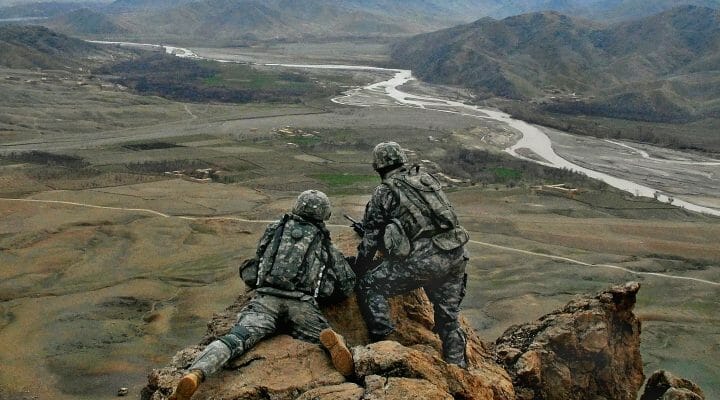Democratic Congresswoman Barbara Lee of California did something Thursday that she’s done every year since 2002. She submitted an amendment to the Defense Appropriations Act to revoke the Authorization for the Use of Military Force that Congress passed in the wake of the September 11 terrorist attacks. For 14 years, Lee, the only member of Congress to vote against the AUMF in 2001, lost.
But she kept coming back for more, and this time, things were different.
If the budget survives in its current form, the administration would have 240 days to get a new AUMF passed, or all military operations against al Qaeda, the Taliban, and ISIS would have to stop. There’s a whole lot of assumptions to get there (it has to survive the debate on the floor, the conference with the Senate, and an almost guaranteed veto), but the fact that this provision made it into the bill, with the committee’s near unanimous approval, is fascinating.
IT TAKES TWO ANNUAL BILLS TO FUND THE DEFENSE DEPARTMENT
For all the attention we’ve been giving the National Defense Authorization Act here at Daily Intel, it is only half of the equation. The other half is (usually) the Department of Defense Appropriations Act. That is unless Congress punts, in which case we get an omnibus spending bill—where the appropriations for the entire government are contained in one massive bill—or a continuing resolution, which is technically a temporary spending measure.
The Joint Chiefs have said that the uncertainty brought on by continuing resolutions is a threat to the nation’s military readiness.
This year, however, Congress seems to be on-track. The House and Senate Armed Services Committees have both completed their mark-ups of their version of the NDAA. But the NDAA only authorizes the DoD to spend appropriated dollars. It falls to the House Appropriations Committee to draft the law that permits the government to withdraw the actual money from the Treasury and spend it.
The committee was meeting Thursday to complete its work on the defense budget when Lee proposed her amendment. And in a voice vote, every congressman present voted “yes,” except Republican Kay Grainger of Texas, the chairwoman of the HAC’s defense subcommittee. Interestingly, Grainger argued, with some justification, that this provision belonged in the NDAA, not the budget. According to reports, she did not push back too hard on the substance.
A WAR-WEARY CONGRESS?
It appears that Congress is finally getting tired of the seemingly endless attempts to expand the scope of the 2001 AUMF. Congress passed the measure to authorize action in Afghanistan, but its language is unspecific enough that it has been used to justify action in Libya, Yemen, and Syria.
Neither ISIS, nor its predecessor, al Qaeda in Iraq, existed in 2001. Congress pressed President Obama to come back with a case for attacking ISIS and the Assad regime in Syria, and has made some of the same noise since President Trump took office. Thursday’s action is a sign that at least one bipartisan bloc believes now is the time to redefine the conditions under which the U.S. can commit military power in the Middle East and South Central Asia.
Lee’s proposal still a long way to go to become law, but the camel, as it were, has gotten his nose under the tent. The rest of him may not stay outside for much longer.



